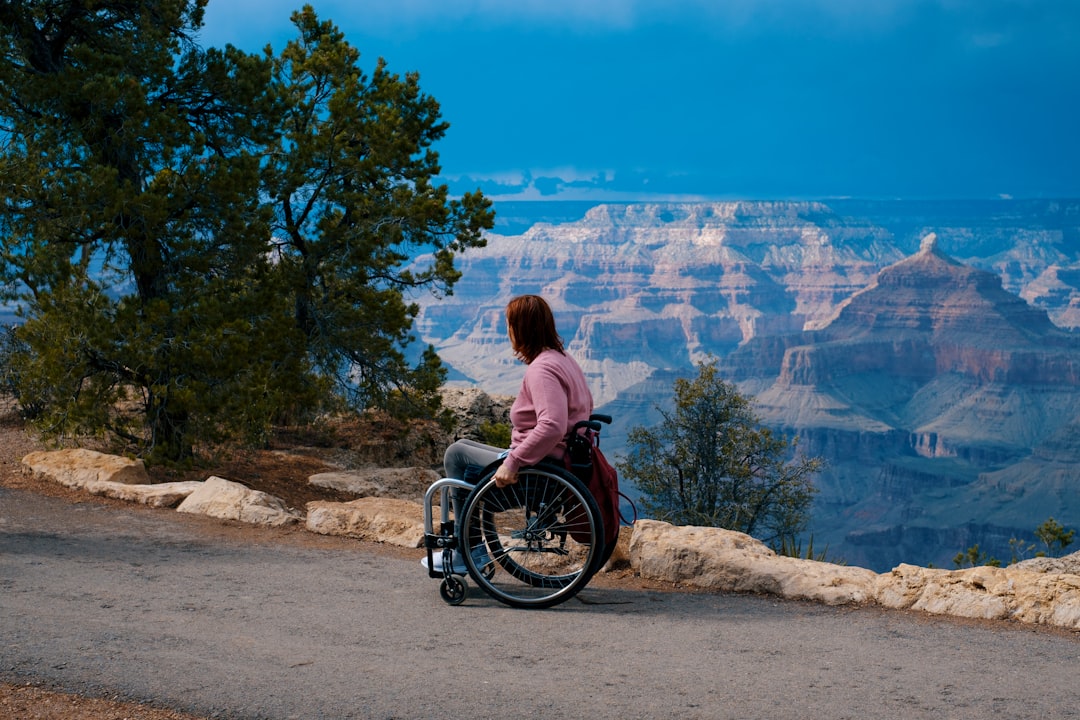
Most of us probably think we’re fairly accepting of others; we see ourselves as less judgmental than Them, whoever They are. I have some bad news: when it comes to disabled people, it’s likely not true.
Society all but encourages this; it always has. History is filled with examples, but I’d encourage you to find them yourself. Disability is something that sets you apart from others, often from the time you’re born. You reach milestones at a different pace than other kids, or not at all. It’s harder to feel included in social situations, to be really seen for who you are and not just what your body is unable to do. The social model of disability — wherein disability isn’t a problem to be fixed but something society needs to adjust to accommodate — helps with this, but not completely.
The crux of the problem is that people are hesitant to change how they think, or won’t change at all. It’s easy. It doesn’t rock the boat. It’s the message sent to us from the time we’re small: disabled people are less than, weaker, less able to lead full and productive lives, more deserving of pity. It’s a bias that none of us are immune to, even people close to us, people who love us.
I’ll give an example, not at all taken from personal experience: a parent, a grandparent, an aunt or uncle sees a disabled child and immediately worries for them. What kind of life will they have? Will it be any kind of life at all? Is it worth living? This is where it starts. This kid ruined the family, they’ll say later. Why are you treating them like they’re normal, they ask, because they’re not!
They’re different from their able siblings and cousins. They’re so needy, they don’t stop crying, they’re clumsy and slow. They draw so much attention from strangers. The future looks… blurry. Their family lies awake at night and agonizes over them. They’re smart, but will it be enough? Will they ever be able to work? Will they be able to support themselves?
It keeps going. I’m just being realistic, they say. Comments like these are in your face, obvious; they slap and they sting and they beat down how you see yourself, but the subtle things might be worse. The sympathetic eyes and pats on the shoulder. The smiles and nods that tell you “yes, you can!” only to skid and screech and stop short when the time comes. We’re proud of you, but you need to slow down.
Keep dreaming, sure. Oh, that? That’s not for you, you can watch everyone else though. Watch them bloom while you grow too big for your own skin, stretching and tearing at the seams. Shouting at the top of your voice and not being heard. Anything to get attention for more than a minute, even if it’s angry, jealous, selfish. No matter how hard you kick and fight and swing back you don’t get free.
That’s what “good” disabled people are expected to do. Go just far enough to not make able people uncomfortable. Grow up and settle into a routine that fits their image of you. Move at a pace that pleases them. Or don’t move at all; stay where you were placed and put your roots there, as if it’s all you can do. The “bad” ones? We try not to think about those.
We ignore them, as a culture. How they stand up for themselves, talk about the things we’d rather pretend aren’t happening. How they integrate themselves into their worlds, contribute something outside their own four walls. We hold them back, tell them no, tell them they’re being unrealistic. According to who, though? To what? To the standards we held disabled people to fifty years ago, when we were all kept out of sight and out of mind. To other people’s fear, for us and for themselves. To their anxiety, their ridicule, their carelessness.
These expectations shape us whether we think we’re stronger or not. They form how we see ourselves, how we connect with others, how we compare ourselves to others. Even the best meaning people are guilty of selling us short, creating something that’s not who we really are or should be. It becomes extremely hard to unlearn, and leaves the more ambitious of us hurting and hungry for more.
And what do we do? We wait. We move at a glacial pace, inching forward in whatever small ways we can. We think wanting it all is too much, so we scale our goals down into smaller pieces that are easier to swallow. That’s what we’ve been told, so that’s all we know. The cycle continues until we’re angry enough to break it, and then it’s all but an explosion. The “good” is gone and what we really think shines through.
We know we can do better. It’s time you did too.

